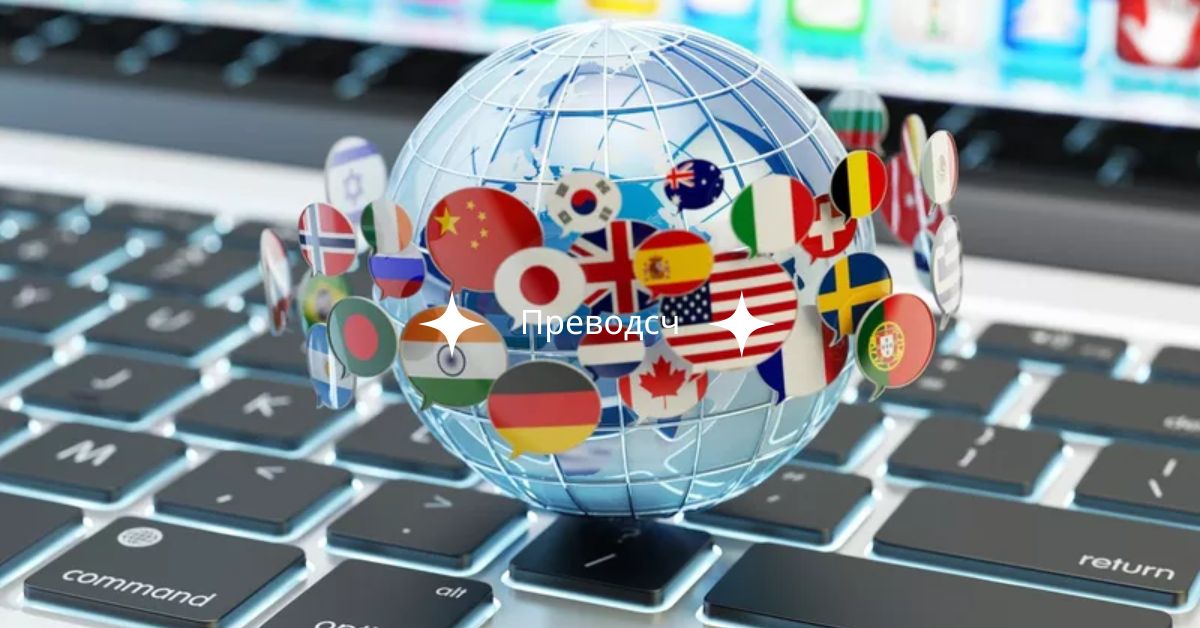Преводсч – Choose Our Experts!
My experience as a technical translator has taught me the importance of accuracy and attention to detail. I’ve always been passionate about languages, and becoming a translator has been a dream come true.
Переводчик (pronounced perevodchik) is a Russian word that translates to “translator” in English. It refers to a person who specializes in converting written or spoken text from one language to another. Translators play a crucial role in facilitating communication.
Join us as we uncover the secrets of the “преводсч” profession and discover the skills and expertise required to become a successful translator.
What Is The Difference Between A Certified Translator And A Non-Certified Translator?
A certified translator has completed a specific training program and passed an examination. This certification often indicates that the translator has a high level of proficiency in both the source and target languages and a strong understanding of translation theory and practice.
Certified translators are often preferred for legal, medical, or technical translations where accuracy and precision are critical.
A non-certified translator may or may not have completed any formal training. They may have acquired their translation skills through experience or self-study.
While non-certified translators can still provide quality translations, they may not have the same level of expertise or credibility as certified translators.
What Is The Best Way To Find Translation Work?
1. Translation Agencies:
Many translation agencies work with clients to find translators for their projects. You can submit your resume and qualifications to translation agencies in your area or online.
2. Direct Clients:
Some businesses and organizations hire translators directly. You can search for these opportunities online or by networking with people in your industry.
3. Freelancing Platforms:
Online freelancing platforms like Upwork, Fiverr, and Proz connect translators with clients from around the world. You can create a profile on these platforms and bid on translation projects.
4. Professional Associations:
Joining a professional translation association can help you connect with other translators and find job opportunities.
5. Networking:
Networking with other translators, language professionals, and industry contacts can also help you find преводсч translation work. Attend industry events, conferences, and workshops to meet potential clients and collaborators.
What Is The Future Of Machine Translation?
The future of machine translation is bright. Machine translation (MT) is becoming increasingly sophisticated, and it is likely to play a larger role in the translation industry in the future. MT systems are already able to produce translations that are reasonably accurate for many languages.
As MT systems continue to improve, they will be able to handle more complex and nuanced texts. This will make MT a valuable tool for businesses and organizations that need to translate large volumes of text.
Overall, the future of machine translation is positive. MT systems are becoming increasingly sophisticated, and they are likely to play a larger role in the translation industry in the future. However, human translators will still be needed to ensure the accuracy and quality of translations.
What Is The Most Important Quality For A Translator To Have?
The most important quality for a translator to have is accuracy. Translators must be able to produce translations that are both accurate and fluent. This requires a deep understanding of both the source and target languages, as well as a strong ability to convey the meaning of the original text in a clear and concise way.
In addition to accuracy, translators should also possess cultural sensitivity, attention to detail, good communication skills, and adaptability. Cultural sensitivity allows translators to adapt their translations to different cultural contexts.
Attention to detail helps translators to spot and correct errors in their work. Good communication skills are essential for interacting with clients and other professionals. And adaptability is important in the ever-changing translation industry.
The Skillset Of A “Преводсч” – Take A Look!
While fluency in both languages is fundamental, a successful “преводсч ” possesses a much broader skillset.
Cultural awareness is essential to understand nuances and references, ensuring translations resonate with the target audience and avoid cultural faux pas. Research skills are vital for accurate and factual translations, especially in technical fields.
Strong writing skills are key for crafting clear, concise, and grammatically correct translations that read well in the target language. Finally, a keen eye for detail is crucial to catch errors and inconsistencies, ensuring a polished final product.
What Is The Importance Of “Преводсч” In The Modern World?
In today’s interconnected world, “преводсч ” play a vital role in fostering communication and collaboration across borders. They are the bridge between cultures, facilitating international trade, scientific progress, and cultural exchange.
Global Business:
As businesses expand internationally, the need for accurate and culturally sensitive translations is paramount. “Преводсч ” help companies navigate communication barriers, build trust with international partners, and effectively market their products and services in foreign markets.
Scientific Advancement:
Sharing knowledge across language barriers is essential for scientific progress. Translators ensure research findings, medical advancements, and technical innovations can be readily understood and adopted by a global audience.
Cultural Exchange:
Translation allows for the appreciation of diverse cultures through literature, film, and art. “Преводсч ” become cultural ambassadors, fostering understanding and promoting cross-cultural dialogue.
What is The Future Of “Преводсч “?
1. MT as a Tool:
While MT tools have become increasingly sophisticated, they still have limitations in accurately capturing nuances, cultural context, and idiomatic expressions. Human translators will continue to be indispensable for ensuring the quality and accuracy of translations, especially in specialized fields or when dealing with complex content.
2. Human-in-the-Loop (HITL):
A hybrid approach combining human expertise with MT will likely become more prevalent. Human translators can review and edit MT outputs, ensuring accuracy and cultural sensitivity while leveraging the efficiency of machine translation.
3. Customizable MT Engines:
Organizations can develop tailored MT engines trained on specific industry terminologies and styles, further enhancing the quality and accuracy of machine-generated translations.
4. Language Diversity:
The growing number of internet users in emerging markets has created a demand for translation services in a wider range of languages. “преводсч” specializing in lesser-known languages will be in high demand to cater to these expanding markets.
5. Cultural Adaptation:
Localizing content involves more than just translating words; it requires adapting to cultural nuances, preferences, and regional variations. Skilled “преводсч ” who understand these cultural differences will be essential for creating effective and engaging localized content.
6. Emerging Technologies:
Augmented reality (AR) and virtual reality (VR) are opening up new opportunities for immersive language learning and cultural experiences. “Преводсч ” who can adapt to these technologies can provide innovative solutions for language training and intercultural communication.
7. Niche Fields:
The demand for specialized translators in fields like legal, medical, and financial translation will continue to grow as businesses and organizations expand globally.
8. Data Privacy:
As translation services handle sensitive information, ensuring data privacy and security will be a critical concern. “Преводсч ” must adhere to strict ethical guidelines and comply with data protection regulations.
FAQs:
1. What are the different types of translators?
There are many different types of translators, including literary translators, technical translators, website localization specialists, and interpreters.
2. What skills do translators need?
Translators need to be fluent in both the source and target languages, have a strong understanding of cultural nuances, and possess excellent writing and research skills.
3. What is the role of a translator in international business?
Translators help businesses communicate effectively with their international partners and customers. They can help businesses to market their products and services in foreign markets, and they can also help businesses to negotiate contracts and resolve disputes.
4. How can I become a translator?
There are many ways to become a translator. Some people become translators by studying translation at a university, while others learn the trade on their own. It is also important to have a strong command of both the source and target languages.
5. What is the future of the translation industry?
The translation industry is expected to continue to grow in the coming years, as more and more businesses and organizations expand their operations internationally. The rise of technology, such as machine translation, is also likely to have a significant impact on the industry.
Conclusion:
In a world increasingly reliant on communication across borders, “переводчики” are more valuable than ever. They bridge the language divide, fostering understanding, collaboration, and cultural exchange. As technology continues to evolve, the role of a “переводчик” will adapt, ensuring their continued importance in facilitating a truly interconnected world.
So, the next time you encounter a work of literature translated into your language, or access a website seamlessly adapted for your region, remember the skilled “преводсч” who played a crucial role in making it possible.
Read more:


![[1:41 pm] chuck mannella https://mindsatplayny.com/](https://www.snipespace.com/wp-content/uploads/2024/09/141-pm-chuck-mannella-httpsmindsatplayny.com_-768x402.jpg)



